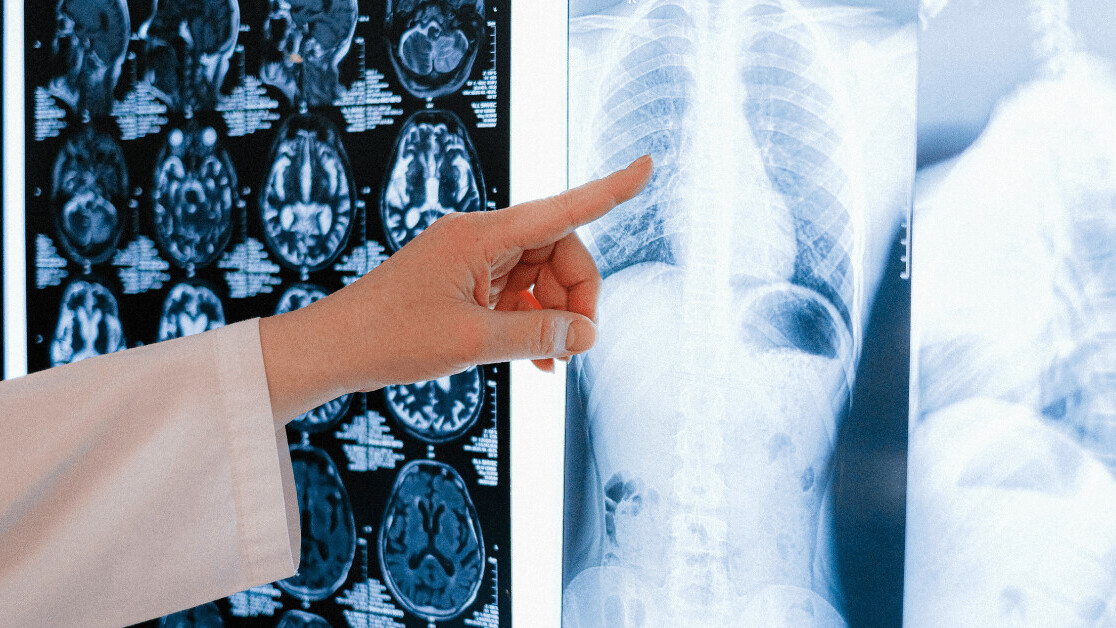An AI imaging database for COVID-19 diagnosis has been provided to British hospitals and universities.
The National COVID-19 Chest Imaging Database (NCCID) is comprised of more than 40,000 CT scans, MRIs, and X-rays taken from more than 10,000 UK patients since the start of the pandemic.
Clinicians are already using the images to track patterns and markers of illness. These insights could help speed up diagnosis, inform treatment plans, and predict whether a patient will end up in a critical condition.
The database was developed by NHSX, a digital unit of the UK’s National Health Service.
“We are applying the power of artificial intelligence to quickly detect disease patterns and develop new treatments for patients,” said Dominic Cushnan, Head of AI Imaging at NHSX. “There is huge potential for patient care, whether through quicker analysis of chest images or better identification of abnormalities.”
[Read: How Netflix shapes mainstream culture, explained by data]
Addenbrooke’s Hospital in Cambridge is using the NNCID to develop an algorithm that helps diagnose patients with COVID-19 symptoms before they get a confirmed test.
Their algorithm compares visual signatures of the virus previously observed in X-rays to patterns spotted in a patient’s medical images.
It’s designed to offer a more accurate diagnosis and prognosis during the earlier stages of the disease. The team believes it will help clinicians rapidly implement appropriate medical interventions, such as giving patients oxygen and medication before they reach a critical stage.
Carola-Bibiane Schönlieb, Head of the Cambridge Image Analysis group at the University of Cambridge, said the diverse dataset has already been invaluable in her team’s research:
The ability to access the data for 18 different trusts centrally has increased our efficiency and ensures we can focus most of our time on designing and implementing the algorithms for use in the clinic for the benefit of patients. By understanding in the early stages of disease, whether a patient is likely to deteriorate, we can intervene earlier to change the course of their disease and potentially save lives as a result.
The database is also helping inform the development of a potential national AI imaging platform, which will be used to safely share data and develop new healthcare tech.
The Department of Health and Social Care says all of the scans are stripped of any identifying patient information before they’re submitted to the collection.
“The use of artificial intelligence is already beginning to transform patient care by making the NHS a more predictive, preventive, and personalized health and care service, said Health Secretary Matt Hancock.
“It is vital we always search for new ways to improve care, especially as we fight the pandemic with the recovery beyond.”
Get the TNW newsletter
Get the most important tech news in your inbox each week.





